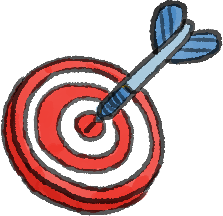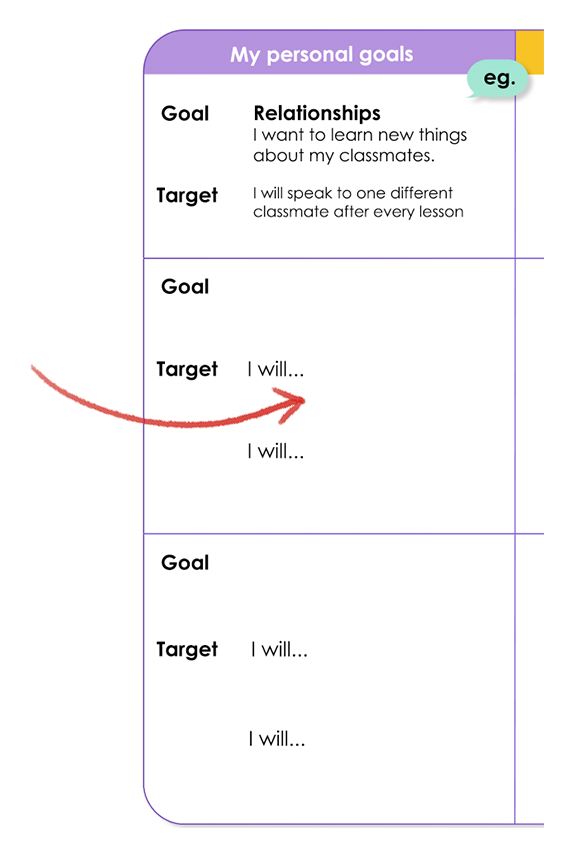Now we need to make some targets. Targets are smaller goals that will help you achieve your big goal.
For example: if your goal is "become healthy" a target might be "go running every day".
Let's make some targets for our English goals!
For example: if your goal is "become healthy" a target might be "go running every day".
Let's make some targets for our English goals!
1. What makes a good target?
|
Good targets need to be SMART!
S: Specific. Don’t make your target too vague. M: Measurable. You should be able to say if you’ve achieved it or not. A: Achievable. Do you have the resources (or people) needed to achieve your goals? Your targets should rely on you, and no one else! R: Relevant. Does it match the goal? Don't set a target that doesn't help you achieve your goal. T: Time-based. Remember you only have a few days at British Hills! Use your time wisely. |
|
Example:
❌ I will ask all British Hills teachers a question. This is not a good target. It isn't relevant to your personal goal. If you want to learn about your classmates, asking British Hills teachers a question will not help you to achieve this goal. ❌ I will speak with many of my classmates. This is an OK target. It’s relevant but it’s not measurable or specific enough! How will you know you’ve met the goal? How many classmates do you mean? How will you monitor your progress? Your target needs more details. ✅ I will speak to one different classmate after every lesson. This is a great target! It’s specific (one different classmate after every lesson). Measurable (did you do this for every class? Most classes? Only some classes?) Achievable (You can reach this goal even with a basic level of English). Relevant (If you do this, you will learn more about your classmates ). And it’s Time-based (I can achieve it within my stay at British Hills). 📝Now it’s time to write your own targets for the two goals. Be sure to write at least two in the boxes. |





